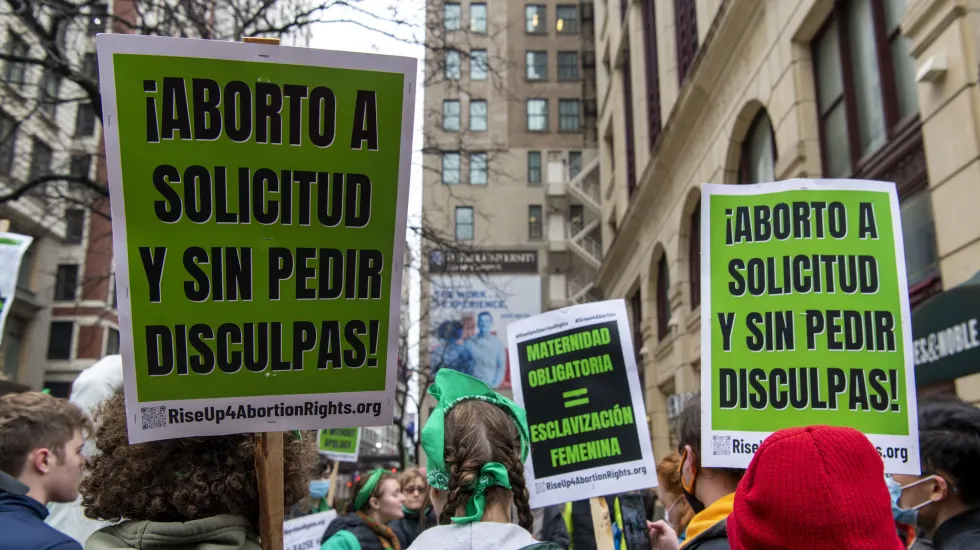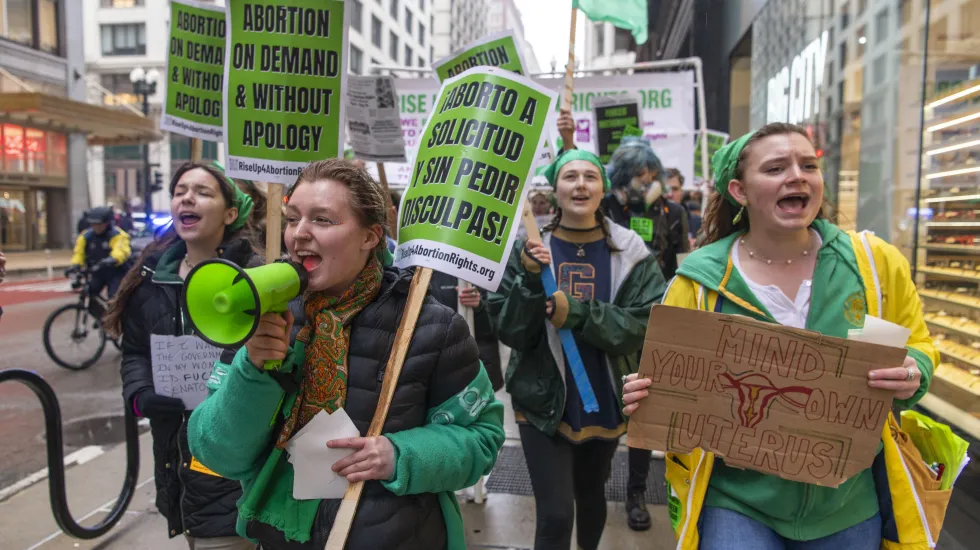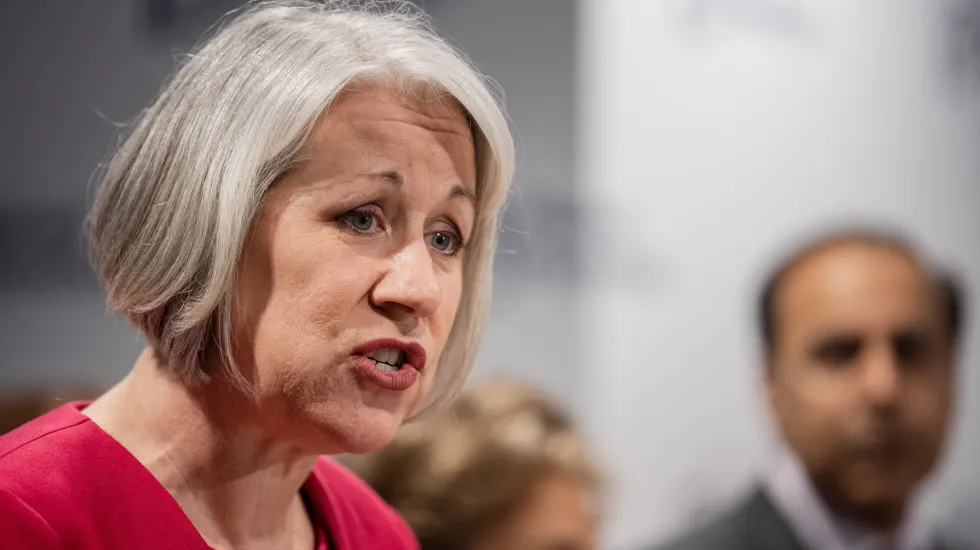
Mujeres Latinas en Acción has often referred uninsured, immigrant women seeking abortions to Chicago-area services like the Chicago Abortion Fund and Planned Parenthood of Illinois.
But Neusa Gaytan, the senior vice president of programs, said she is unsure how women living in other states that are likely to soon ban abortions will make their way to Illinois. She sees the fight for abortion rights as intersecting with the fight for immigrant rights.
“If you are a woman of color, if you are Latina, and if you are low-income, how are you going to be able to travel to another state that can perform this service?” Gaytan said.
Advocates and providers are bracing for a surge of women seeking abortions in Illinois if the U.S. Supreme Court reverses its Roe v. Wade decision guaranteeing the right to abortion that Americans have experienced for decades. Because of a 2019 change in state law, abortion will remain legal in Illinois and the state will likely become a haven in the Midwest for those seeking abortions.
An estimated 26 states, including many surrounding Illinois, are likely to ban abortions if the Supreme Court reverses the historic 1973 case, according to the Guttmacher Institute.
“It will be devastating,” said Megan Jeyifo, the executive director of the Chicago Abortion Fund. “Abortion is already incredibly hard to navigate in this country. That’s why our volunteer program is such a long process, why we have so much training because even those of us who do it every day, we are regularly stumped by certain barriers or certain circumstances that someone might face. And we know people of color, particularly Black women, are going to be faced with the highest burdens.”
Many people who call the Chicago Abortion Fund for help are people of color, immigrants, those with disabilities, trans and gender-nonconforming people and those in rural areas, she said.
A 2008 national study that followed women for five years showed that women denied abortions had more physical health problems than those who got abortions. Two women in the study died after giving birth, said Diana Greene Foster, a professor and director of research at the University of California, San Francisco’s Advancing New Standards in Reproductive Health.
The study also looked at the women’s credit reports and found that women who were denied an abortion faced greater economic hardships ranging from evictions, bankruptcies and debt than those who were able to get the procedure, Foster said.
Women who were denied an abortion were also less likely to later have an intended child, she said.
“This idea of restricting access to abortion to have people have kids, they, in fact, might just be preventing them from having kids under better circumstances,” Foster said.
The Chicago Abortion Fund — which provides financial, emotional and logistical support for women having abortions — has hired more support coordinators in anticipation of the Supreme Court ruling and is in the process of onboarding a large group of volunteers, Jeyifo said.
And while the Fund has received a stream of donations in the days since the leaked draft of the ruling overturning abortion rights was published by Politico, Jeyifo said that’s still not enough for the surge abortion advocates in Illinois are expecting.
A change in rights could mean an additional 20,000 to 30,000 people per year will come to Illinois to seek abortions, said Jennifer Welch, the president and CEO of Planned Parenthood of Illinois.

And in recent years, more women from other states were already coming to Illinois to get abortions.
In 2020, 9,686 nonresidents had abortions in Illinois compared with 7,534 in 2019, according to statistics from the Illinois Department of Public Health. And in 2018, there were 5,668 women from out-of-state who had abortions in Illinois.
Most nonresidents are coming from Missouri and Indiana. But others have come from Wisconsin, Michigan, Kentucky, Iowa, Tennessee and Arkansas, according to IDPH.
In suburban Skokie, Carafem has already had clients seeking abortions from as far away as Missouri, said Melissa Grant, the chief operating officer at Carafem. One of the reasons the location was chosen was to serve those in neighboring states.
During the coronavirus pandemic, the clinic accelerated its use of telemedicine to allow them to treat patients who are at an Illinois address without the person coming to Skokie. And as changes in abortion rights loom, the clinic is adding physicians, support staff and nurses to quickly respond to those who will travel to Illinois for the medical procedure.
“We’ve looked at the chipping away of the availability of abortion, particularly in the Midwest and in the South. It’s been a wake-up call for many of us that the day of reckoning may come where the folks who are against abortion will continue to push and push and push until abortion was simply not available,” Grant said.

Planned Parenthood of Illinois in recent years opened clinics near the Indiana border, the Wisconsin border and moved to a larger location in the Loop in anticipation of changes, said Welch, the group’s president and CEO.
The organization also hopes its expansion of telemedicine will help serve the influx of women coming to Illinois, Welch said. Patients will be able to do a video visit with a clinician in Illinois, and then will have to either come to Illinois to get abortion pills or have them mailed to an address in the state, she said.
Planned Parenthood is also working with the Chicago Abortion Fund on a project to help those who will need to travel in Illinois navigate the process.
“We’re really worried that the patients who are going to need our help are in many cases the patients who already face a lot of barriers to health care — whether that’s Black and Brown folks, LGBTQ folks, people living with lower means or living in poverty,” she said. “So we are trying to make sure that your ability to access abortion doesn’t depend on your income. That it is available to you no matter what.”
Elvia Malagón’s reporting on social justice and income inequality is made possible by a grant from The Chicago Community Trust.







